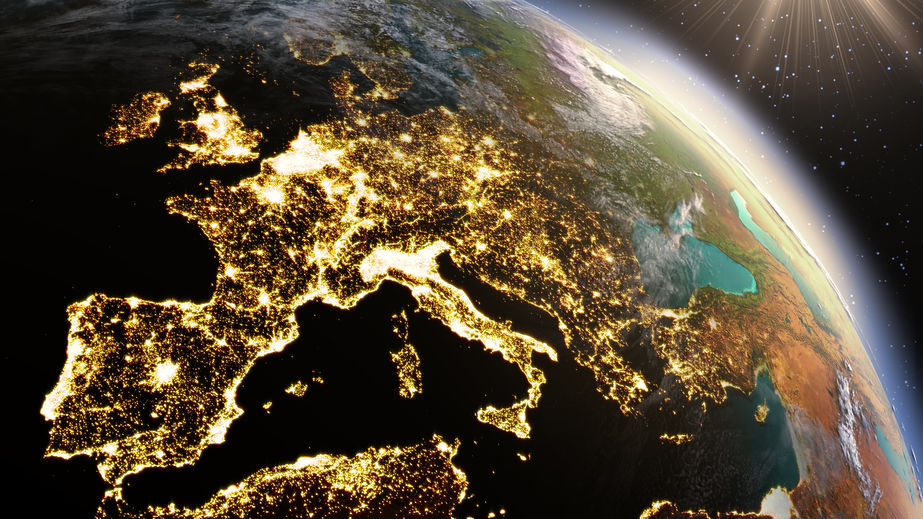By Sam Buchan:
Amidst the backdrop of a frenzied world tour to secure contingencies in the event of a catastrophic energy crisis, EU representatives attended the 9th U.S.-EU Energy Council. Still, throughout all the statements and optimistic tweets pointing to vague targets like greater “cooperation,” the solution seemed elusive.
Political leaders on both sides of the Atlantic must acknowledge that the status quo got Europe into the crisis today. They would be wise to change course both through their action and their words immediately.
The oddity is that both U.S. and EU leaders continue to overlook the not-so-subtle cries from energy markets resulting from aggressive climate policies forcing would-be project financiers to seek shelter and marginal returns in renewables. Investment stagnated, critical projects were abandoned, and Russia pressed for a more significant market share.
There was a time in the not-so-distant past when the climate activists did not fully control the political agenda, and leaders were committed to avoiding catastrophic system vulnerabilities. The U.S. and EU were once on track to facilitate new infrastructure development, further market inroads for natural gas, including those dominated by coal, cut off from access to clean energy, or dangerously dependent upon Russian supplies.
In July of 2018, Former Secretary Rick Perry and EU Energy and Climate Commissioner Miguel Arias Cañete hosted the first U.S.-EU High-level Business-to-Business forum on LNG, which according to the EU, fostered “further actions to harvest commercial opportunities” in LNG trade. The message was clear and included “new infrastructure for upstream development, liquefaction, and re-gasification,” as well as “new business models and financial instruments in a changing market.”
This kind of support is partly why U.S. LNG exports to Europe have experienced a 2418 percent increase since President Trump empowered U.S. LNG exporters and embraced the very “cooperation” leaders now call for.
The last two years saw this progress undermined, but there are still avenues for returning our continents to our once valued course toward energy security and a sustainable transition.
First, the Biden administration and the EU Commission must send a clear signal to the market and investment community by publicly demonstrating their commitment to natural gas, principally LNG, as a viable long-term clean energy fuel. Without such action, investors will continue avoiding critical infrastructure, including the multi-billion-dollar export-import operations that the EU relies upon for security of supply and a future hydrogen economy.
Allowing climate activists and political leaders to shame natural gas is why European gas purchasers are reluctant to sign long-term contracts, the absence of which exposes them to price volatility. The best course of action is for the EU to host a forum like the one held in 2018 to restore cooperation on LNG and expand the supply and price stability experienced by nations with long-term contracts with U.S. LNG suppliers.
Second, if he genuinely wants to assist Europe, President Biden should lift his hold on the “up to $1 billion” investment into Europe’s energy infrastructure that President Trump committed to through the Three Seas Initiative. Secretary Blinken could deposit funds tomorrow in the U.S. Treasury to secure credit for the U.S. Development and Finance Corporation. President Biden wouldn’t even need to reverse his horrible decision to oppose overseas fossil fuel projects, although he should. Congress provided the legislative cover for DFC under the European Energy Security and Diversification Act of 2019. Investments that mitigate midstream constraints should be a top priority for the newly confirmed DFC CEO.
Third, the EU should actively counter Russian disinformation campaigns that paint U.S. natural gas as “dirty.” According to the IEA, Russian gas has the highest methane intensity globally. The EU should also launch a program in cooperation with global LNG suppliers to help educate the electorate on the climate attributes of this “bridge fuel” in the transition. This would complement ongoing efforts between the U.S. and EU on methane mitigation and transparency.
Finally, Germany should restart discussions on developing its own LNG terminal. Such a move would mean diversification for Germany and much-needed economic leverage against Russia. Chancellor Scholz must restore its credibility after Germany killed off its nuclear fleet and cozied up to the Russians. The latter was made clear when former Chancellor Gerhard Schroeder was nominated to the Board of Russia’s Gazprom. It’s time to break the cycle of pro-Russian German Chancellors.
These actions do nothing to undermine the shared values of the U.S. and EU in pursuing a cleaner and more secure energy future; in fact, they further this vision by fostering greater cooperation and transparency between U.S. and EU officials, as well as with LNG industry leaders.
Sam Buchan served as Director on the White House National Economic Council and Senior Advisor to Secretary of Energy Rick Perry. He is an energy and foreign policy strategy consultant.
This article originally appeared at Real Clear Energy
